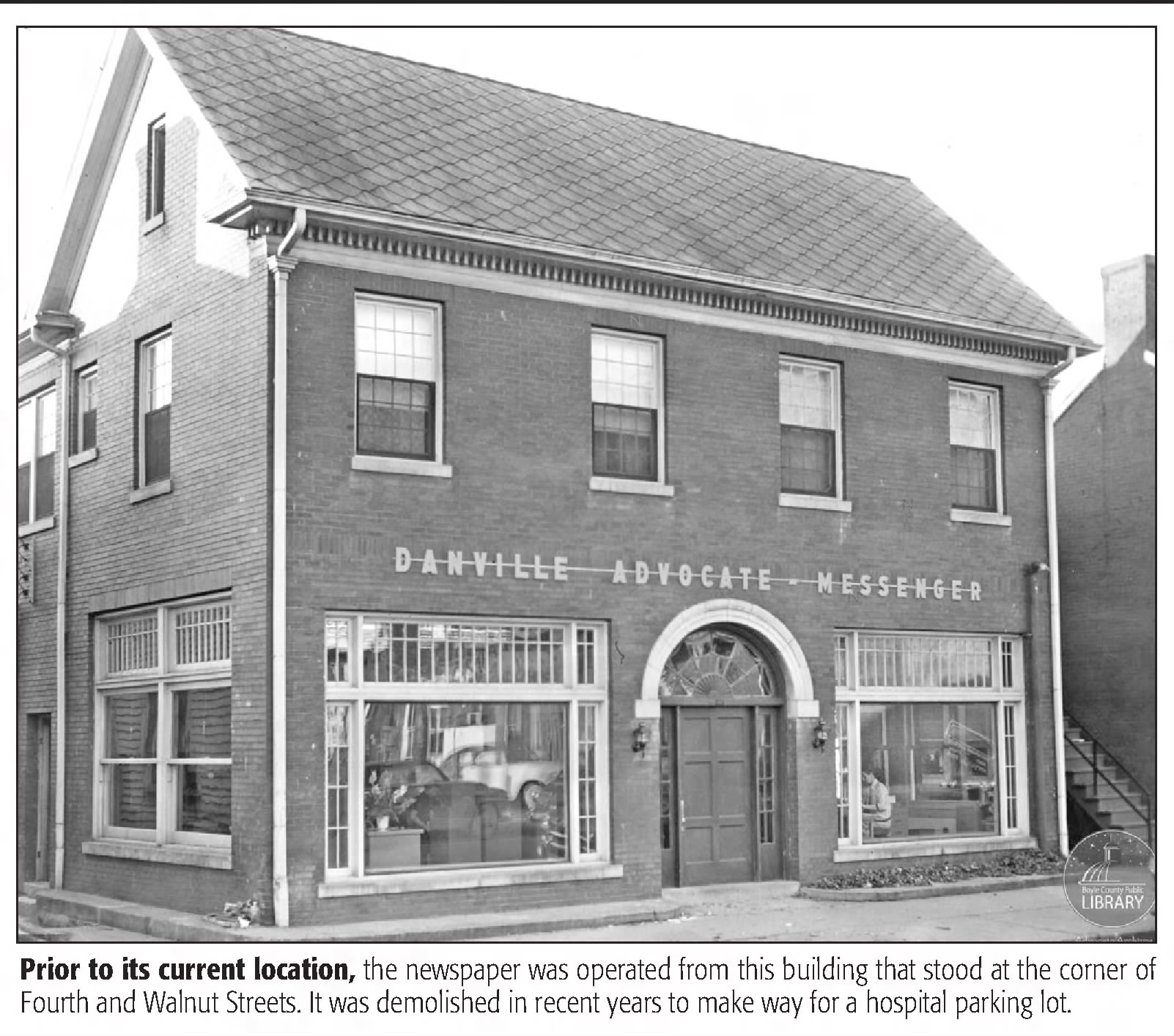Danville mayor questions value of public comments
Published 7:02 pm Thursday, December 13, 2018

- Bobbie Curd Danville city commissioners and staff discuss goals and objectives for the upcoming year during Wednesday's management team retreat.
A discussion Wednesday over whether or not the “commissioners’ comments” portion of the Danville City Commission meetings should be eliminated turned into a lengthy debate over what the public is allowed to approach the city about in a public forum. It was opened up by City Manager Ron Scott at the beginning of the annual city commission/management team retreat held at Danville Country Club.
Scott said comments have been received from citizens about commissioners talking about community events when they should be focusing on city business. Mayor Mike Perros said someone who voiced an opinion called it a “waste of time.”
None of the city commissioners agreed with that assertion. Commissioner J.H. Atkins said their comments all together usually amount to five minutes’ worth of time, and he likes being able to tell staff they’ve done a great job when it’s appropriate.
“It’s appropriate to celebrate the accomplishments of the city and staff,” Commissioner Kevin Caudill said. “I get it from other sources, so I bring it to the meetings.”
And as far as giving shout-outs to other organizations after successful events, Commissioner Denise Terry said things like this actually do pertain to city business.
“It’s about the well-being of the city,” Terry said.
Commissioner Rick Serres said, “Part of what we’re doing with city commission business is promoting those folks around us and what’s happening at the Heart of Danville, or the Convention and Visitors Bureau.” He said he feels it’s a positive thing, but understood there is some caution that should be used.
“We do need to keep from pontificating on anything that’s not community-related,” Perros said.
‘Not here to take a shellacking’
Perros also wanted to talk about comments from the public. There are currently two opportunities during commission meetings — one “hear the public” for anyone to talk about items on that night’s agenda; and another for comments on anything else.
Both Perros and Scott said Danville is the only community in the state that does this.
“While many times those open comments are productive, there are far too many times the commission has to sit up there and take a shellacking from a citizen that puts forth some statement without merit or basis,” Perros said. “And I personally find that offensive.”
He said “hear the public” has been abused by some, and the commission has “taken hits.”
“When you can’t respond to someone, the silence gives consent to anybody else out there.”
Perros said he thinks citizens’ comments should first be “vetted” by Scott. “Or have the comments at least filtered — not sure I like that word — but filtered to the extent that what is being said is factual in basis.”
The mayor said there’s been too many times where things are said that aren’t true, and one time in particular sticks in his head. “And it came from somebody in this community who’s a very intelligent, successful business person. And I’m not there to take a shellacking.”
“Or allow our staff to,” Terry added.
Atkins disagreed. “I think we are. I think to say we’re not going to let John Doe get up and vent for three minutes or less at a meeting would be the wrong move. I say let John Doe vent.”
He said sometimes a response is not even needed. “We have to consider the source and realize we deal with controversial issues. … We have to be willing to let them say what they want to say. Because as a commissioner, we never hesitate to say what we want to say at a meeting.”
Perros said he doesn’t understand why citizens wouldn’t approach them outside of a meeting first and “engage in a discussion.” Atkins said most do, and that he doesn’t think he hears a lot of negative comments during meetings; he hears more outside of them. He said the public should be allowed to say what they want “with some constraints.”
“Well, what are those constraints?” Perros asked.
“Three minutes or less,” Atkins replied.
“So, I can come before commission and say, ‘There’s been a major embezzlement at city hall, it’s large and some people need to do jail time. Thank you very much.’ And we have to just sit there?” Perros asked.
Atkins said yes, “And I have to sit there and take it … I think it just comes with the territory.”
Scott said the point is more about commissioners not getting into city service issues. “Embezzlement, for example, would be a major thing that would require investigation.”
Perros said but at this point, “You’ve already spewed the cancer — it’s already spread. The allegation has been made.” Because the commission doesn’t respond, the public is “led to believe the allegation is true … at that point, you have an obligation to set the record straight … But I’m not interested in — I have a business. I have a reputation to uphold. You do too,” he said, pointing to other commissioners.
Scott said most citizens with service issues do come to city hall, but he understood the mayor’s point. “Some people don’t want the problem solved, or they just want to be in the limelight, perhaps, and so they bypass us to get greater visibility on the issue.” He said some may have already discussed it with staff and decided to take the issue to the commission.
City Attorney Stephen Dexter said responding to something they may not know the full story on is “damning to this form of government,” because staff may have already made a determination based on legality or other specifics.
“But you’re saying I can’t respond,” Perros said.
“You can respond, but I think your response needs to be a non-response,” Dexter said, adding they can let citizens know they will take the issue back to staff.
Town hall meetings
Caudill said it bothers him more “when staff is being attacked … As far as we go, we ran (for office) and we knew what we were getting into.”
Terry suggested creating a pamphlet of some sort to have on-hand at the meetings, as was done in previous administrations, which gave citizens more guidelines about what’s appropriate.
She said, “If someone acts outside those guidelines, you have the authority …”
“By that time, you’re adding blood to the floor. There’s a simple answer,” Perros said. “If I have a concern I want to share, I go to this man right here (Scott) … and this man has the filter to say that’s a legitimate concern …”
He said if if there’s been “no vetting, if you will, I got a problem with that … I’m strong on this, and I respect everyone’s opinion. It’s totally fair to have a legitimate concern but first have it vetted by the city manager. That is our city manager form of government. If we’re going down that road, let’s go down that road. Issues with leaves? It goes to him. Or sewer, goes to him. But if someone’s just mad about taxation, who benefits from that except the person who feels better after they sit down. In the meantime, nothing’s been accomplished.”
Dexter said if citizens are mad about taxes, that’s the best place for them to bring their concerns. “If we’re going to have a hear the public, if I want to come and say why I think you shouldn’t have taken a 2-percent increase on property taxes … that’s the appropriate time to hear it. It’s a commission decision, not a staff action … I agree with you, it’s tough. But that’s the form of government we have, right now.”
The idea of creating a town hall event offered once a quarter in an open forum was brought up as an alternative to taking public comments during every meeting.
“I would welcome that, totally,” Perros said. “The problem we have in this country is everyone wants to say what they want to say, but nobody wants to listen.”
Atkins asked the group to take a look at a resolution, passed in 2017 after a staff retreat, establishing “covenants of courtesy to promote goodwill and efficiency in governance.”
“If you look at No. 17, and the fact that all five of us are sitting here after being re-elected, it says “’Be a welcoming commission that listens to the public before, during and after meetings.’ I think that’s been one of our strengths. That’s why I advocate for the two public comment sessions.”
Perros agreed, but said the commission has “an obligation to educate” citizens. He said he questions the motivation of individuals who are “going to take their time to go to city commission, wait that length of time to have their say, blurt it out there … If they’re not willing to engage in a conversation of facts … then what’s their real motivation?”
“Not sure that’s our call,” Caudill said. “OK, their motivation is to make us look bad or have their pound of flesh, then OK.”
Perros said he had no interest in that, but welcomed “having a debate, sharing perspectives and information” in the appropriate forum.
“Sometimes people just need to be heard,” Dexter said, and brought up the episode of “Seinfeld” where they aired their grievances before holiday meals.
Perros said every grievance is legitimate “in the mind of the person. But that opinion in their mind becomes fact, until you share facts …”
“Don’t you think that a person who comes to the meeting, knowing they’re televised, takes their three minutes and rants and raves at us, they already know the proper process to go to city manager and staff? They have just decided not to do that,” Atkins said. “We don’t get a lot of it, and you’ve spent more time talking about it this morning than what we get in the meetings.”
“You made a little Freudian slip there when you said they know it’s going to be televised,” Perros said. “That’s not appropriate. If you’re trying to get your message out because you know the city commission meeting is televised, I got a major problem with that.”
Commissioner Rick Serres said, “Not everybody is coming to complain, but we are his (Scott’s) boss, and if they’re dissatisfied with the staff’s answer, they want to let all of us know. Sometimes it’s just frustration.”






